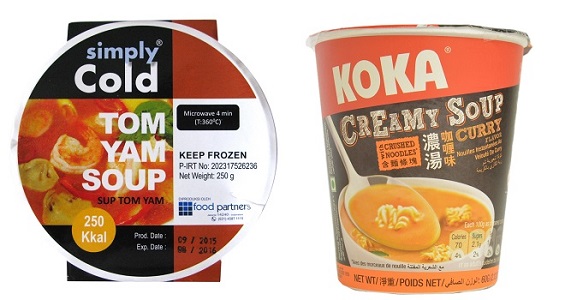Soup traditions run deep in Indonesia, reflecting the country’s wide-ranging culinary influences as well as its strategic trade location, which has resulted in a wide variety of flavoursome soups. A familiar dish among Indonesians, soup is considered to be a healthier choice compared to less traditional foods such as Western fast food, burgers and pizza.
Healthful eating intentions are rising in Indonesia as research from Mintel reveals that 62% of metro Indonesians planned to have a healthier diet in 2016. This is good news for the country’s nascent prepared soup category, especially for manufacturers targeting the growing cohort of urban convenience seekers who are too busy to cook healthy meals for themselves.
Indonesia’s prepared soup market volume is quite small, and per capita consumption is miniscule, compared to the leading soup markets in the Asia Pacific region. However, prepared soup has enjoyed strong growth in Indonesia in terms of market value from 2011 to 2015, and similar growth is projected from 2016 and 2020, according to Mintel estimates.
Urbanisation is driving economic growth as well as rapid cultural change, and that is spurring demand for convenient prepared foods especially as Indonesians migrate from traditional neighbourhood warungs to modern convenience stores.
Indonesia’s ban on the sale of alcoholic drinks in small retail formats could open up more opportunity for prepared soups in the C-store channel as store operators shift their focus to ready-to-eat foods in a bid to drive growth. This suggests scope for prepared soup innovation that targets single-serving occasions, as well as soups that cater to on-the-go consumers who are interested in taking foods back to their workplaces or homes to eat.

Snacking Indonesians look for healthier options, opening doors for soup snacks
According to Mintel research, Indonesians claim that they plan to engage in a range of food-related activities to support personal health and wellness, including eating more fruits and vegetables. These healthy intentions will likely influence snack choices, and create opportunities to develop healthy-positioned soup products targeted for snacking occasions.
Soup manufacturers looking to target health-seeking consumers in Indonesia should pay attention to the ingredients consumers are most likely to avoid, such as saturated fat, refined sugar and highly processed carbohydrates, while increasing the prevalence of vegetables and natural sources of protein.
Patty Johnson, Global Food and Drink Analyst at Mintel, leverages her in-depth knowledge of consumer trends to bring keen, insightful and forward-thinking strategies and tactics to Mintel’s client base. She has built a strong reputation within the food industry by publishing articles in key publications and giving presentations at multiple food industry events and conferences.








































